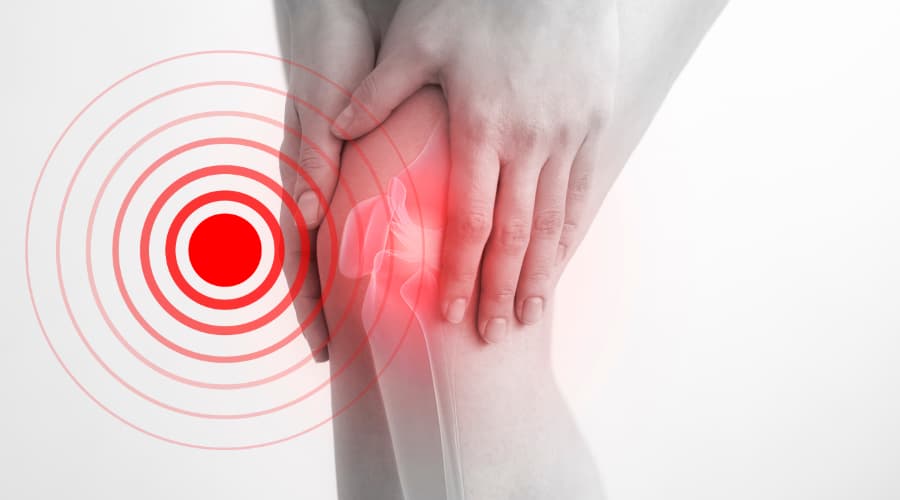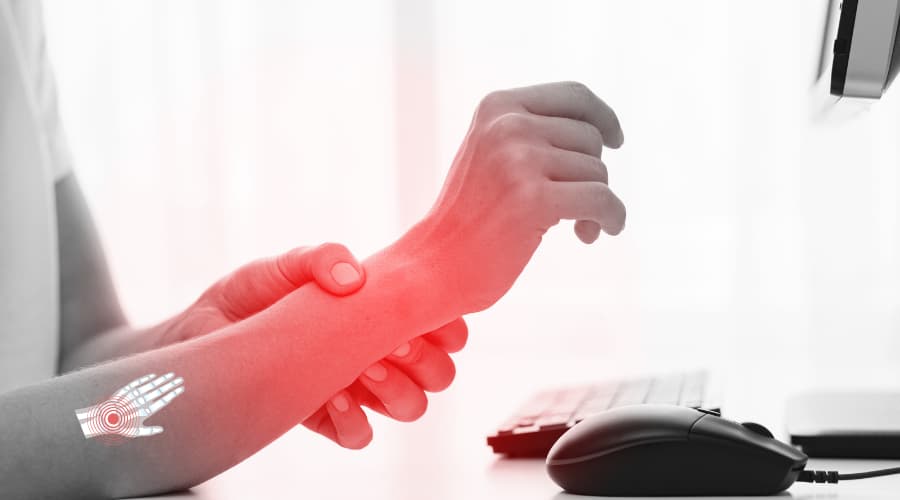Hyaluronic acid injections are an effective treatment for arthritis and other joint conditions. However, as with any medical procedure, there are some potential side effects that you should be aware of before getting hyaluronic acid injections.
Hyaluronic acid is a naturally occurring substance in the body that helps to lubricate and cushion joints. It is often injected into osteoarthritic joints to help reduce pain and inflammation. Hyaluronic acid injections have been shown to be an effective treatment for osteoarthritis and other joint conditions. However, as with any medical procedure, there are some potential side effects that you should be aware of before getting hyaluronic acid injections.
Potential Side Effects
The most common side effect of hyaluronic acid injections is pain at the injection site. This pain is typically short-lived and goes away within a day or two. Other potential side effects include:
Swelling: Some people may experience swelling at the injection site. This is usually temporary and will resolve on its own.
Bruising: Some people may experience bruising at the injection site. This is also usually temporary and will resolve on its own.
Infection: There is a small risk of infection associated with any medical procedure. Contact your doctor right away if you experience any signs of infection, such as redness, swelling, or fever.
Allergic reaction: Some people may be allergic to hyaluronic acid. Contact your doctor right away if you experience any signs of an allergic reaction, such as hives, rash, or difficulty breathing.
Redness: Some people may experience redness at the injection site. This is usually temporary and will resolve on its own; by itself, it is not a reason to be alarmed.
Numbness or tingling: Some people may experience numbness or tingling at the injection site. This is usually temporary and will resolve on its own; by itself, it is not a reason to be alarmed.
Headache: Some people may experience a headache after getting hyaluronic acid injections. This is usually temporary and will resolve on its own. If you experience a severe or persistent headache, contact your doctor.
Dizziness: Some people may experience dizziness after getting hyaluronic acid injections. This is usually temporary and will resolve independently, although you should avoid driving or operating machinery until the dizziness resolves.
Fever: There is a small risk of fever associated with any medical procedure. Contact your doctor if you experience a fever after getting hyaluronic acid injections for more than 24 hours.
Joint pain: Some people may experience joint pain after getting hyaluronic acid injections. This is not a common side effect and typically goes away within a few days.
Sinus infection: Some people may experience a sinus infection after getting hyaluronic acid injections. This is not a common side effect and typically goes away within a few days.
If you experience a severe or persistent sinus infection, contact your doctor.
Nausea: Some people may experience nausea after getting hyaluronic acid injections. This is not a common side effect and typically goes away within a few hours. If you experience severe or persistent nausea, contact your doctor.
Vomiting: Some people may experience vomiting after getting hyaluronic acid injections. This is not a common side effect and typically goes away within a few hours. If you experience severe or persistent vomiting, contact your doctor.
Diarrhoea: Some people may experience diarrhoea after getting hyaluronic acid injections. This is not a common side effect and typically goes away within a few hours. If you experience a severe or persistent diarrhoea, contact your doctor.
Rash: Some people may experience a rash after getting hyaluronic acid injections. This is not a common side effect and typically goes away within a few days. If you experience severe or persistent rash, contact your doctor.
Itching: Some people may experience itching after getting hyaluronic acid injections. This is not a common side effect and typically goes away within a few days. If you experience severe or persistent itching, contact your doctor.
Heartburn: Some people may experience heartburn after getting hyaluronic acid injections. This is not a common side effect and typically goes away within a few hours. If you experience severe or persistent heartburn, contact your doctor.
Sore throat: Some people may experience a sore throat after getting hyaluronic acid injections. This is not a common side effect and typically goes away within a few days. If you experience severe or persistent sore throat, contact your doctor.
Swollen glands: Some people may experience swollen glands after getting hyaluronic acid injections. This is not a common side effect and typically goes away within a few days. If you experience severe or persistent swollen glands, contact your doctor.
Shortness of breath: Some people may experience shortness of breath after getting hyaluronic acid injections. This is not a common side effect and typically goes away within a few hours. If you experience severe or persistent shortness of breath, contact your doctor.
Chest pain: Some people may experience chest pain after getting hyaluronic acid injections. This is not a common side effect and typically goes away within a few hours. If you experience severe or persistent chest pain, contact your doctor.
Hyaluronic acid injections are a relatively safe and common treatment for joint pain. However, there are some potential side effects that you should be aware of before getting these injections. Some of the most common side effects include fever, joint pain, sinus infection, nausea, vomiting, diarrhoea, rash, itching, heartburn, sore throat, swollen glands, and shortness of breath.
Contact your doctor if you experience any of these side effects after getting hyaluronic acid injections.
Related Articles
- What Are Hyaluronic Acid Injections?
- Patient Selection Criteria for Hyaluronic Acid Injections
- Ostenil Plus: Hyaluronic Acid Injections
- Hyaluronic Acid Injections FAQs
- Knee Osteoarthritis: Symptoms and Treatment




